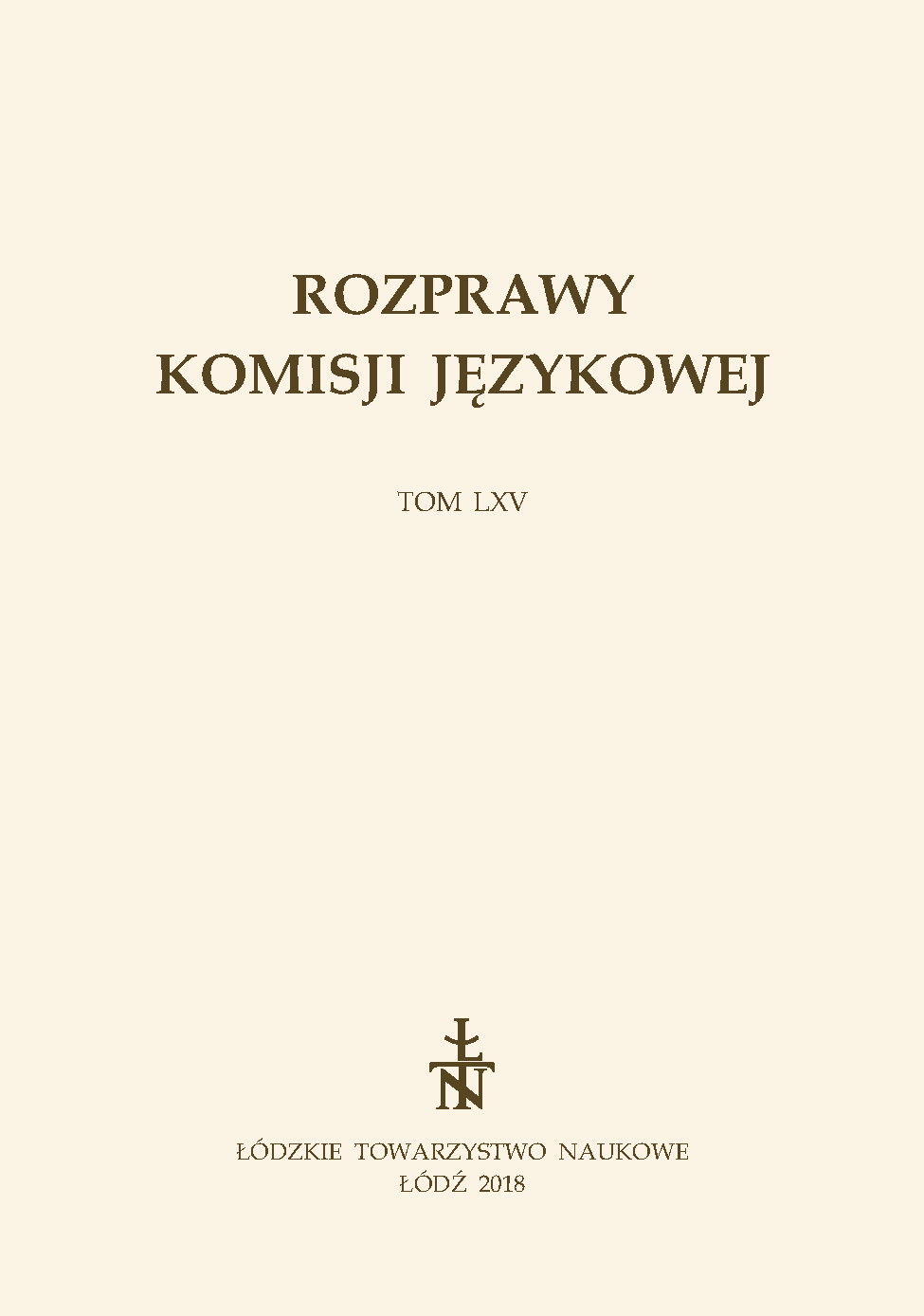Лексіка ранніх перакладаў апокрыфаў і яе роля
ва ўзбагачэнні слоўнікавага складу старабеларускай мовы
The vocabulary of early translations of Apocryphos and its role in enriching the vocabulary of the Old Belarusian language
Author(s): Iryna Budz’koSubject(s): Lexis
Published by: Łódzkie Towarzystwo Naukowe
Keywords: diachronic lexicology; protograph; borrowing; glosses; semantics
Summary/Abstract: The article analyzes the lexical composition of early translations of the historical texts of old Belarusianliterature (the category of persons) of the 15th century. On the basis of matching individualwords with their counterparts in the Old Russian and Old Polish languages it is concluded that themain lexical body of texts is consistent with Polish counterparts. Some nominations are enteredinto an ancient text with the help of the conjunction markers abo, albo and represent glosses withinthe text, the purpose of which is to explain to the reader unclear words in the opinion of the interpreterof the word. The vocabulary of these texts has many nominations: metaphorical, figurativemeaning, emotional-evaluative expressions, which enrich the vocabulary of the Old Belarusianlanguage and raise it to the level of the literary. The article also presents the nominations, whichare recorded only in the analyzed historical texts and are no longer found in other texts of the OldBelarusian written language. Thus, the role of the Old Polish language and Old Polish literaturein enriching the dictionary of the Old Belarusian language is presented, as well as the work of oldBelarusian scribes on the interpretation and translation of the original text in such a way that thetranslation meets the needs of different culturally oriented layers of the old Belarusian society.The article analyzes the lexical composition of early translations of the historical texts of old Belarusian literature (the category of persons) of the 15th century. On the basis of matching individual words with their counterparts in the Old Russian and Old Polish languages it is concluded that the main lexical body of texts is consistent with Polish counterparts. Some nominations are entered into an ancient text with the help of the conjunction markers abo, albo and represent glosses within the text, the purpose of which is to explain to the reader unclear words in the opinion of the interpreter of the word. The vocabulary of these texts has many nominations: metaphorical, figurative meaning, emotional-evaluative expressions, which enrich the vocabulary of the Old Belarusian language and raise it to the level of the literary. The article also presents the nominations, which are recorded only in the analyzed historical texts and are no longer found in other texts of the Old Belarusian written language. Thus, the role of the Old Polish language and Old Polish literature in enriching the dictionary of the Old Belarusian language is presented, as well as the work of old Belarusian scribes on the interpretation and translation of the original text in such a way that the translation meets the needs of different culturally oriented layers of the old Belarusian society.
Journal: Rozprawy Komisji Językowej
- Issue Year: 2018
- Issue No: 66
- Page Range: 39-59
- Page Count: 21
- Language: Belarusian

